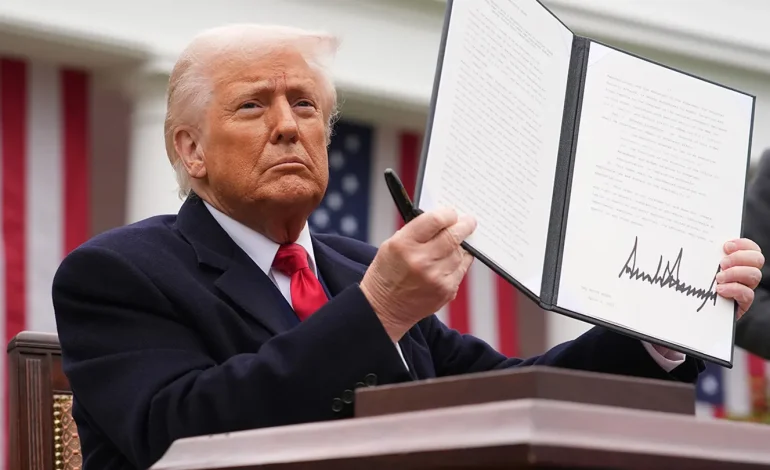Trump Warns of Economic Ruin if Courts Block His Tariffs

President Donald Trump warned Sunday that the United States could face economic devastation if courts ultimately strike down his administration’s tariffs, following a major legal setback in federal court last week.
His comments came after the U.S. Court of International Trade issued a unanimous ruling that blocked the use of an emergency economic law to impose broad import taxes. The three-judge panel—appointed by Trump, Barack Obama, and Ronald Reagan—determined that Trump exceeded his authority and emphasized that the president does not have unbounded power to impose tariffs without congressional approval.
Posting on Truth Social, Trump argued that removing the tariffs would invite unfair trade practices from other countries, severely harming the U.S. economy.
“If the courts somehow rule against us on tariffs, which is not expected, that would allow other countries to hold our nation hostage with their anti-American tariffs that they would use against us,” he wrote. “This would mean the economic ruination of the United States of America.”
At the center of the case is Trump’s use of the International Emergency Economic Powers Act (IEEPA) to implement a 10 percent base tariff along with so-called reciprocal tariffs on certain U.S. trade partners. His administration argued the move was essential to securing fairer trade deals and protecting national interests.
But the Court of International Trade found that the IEEPA was not designed to enable broad economic policy shifts. The court’s decision prompted an immediate appeal. On Thursday, a federal appeals court issued a temporary stay, allowing Trump’s legal team until June 9 to submit new arguments.
Trump’s lawyers face a Monday deadline to respond by 5 p.m., setting the stage for a possible legal clash before the Supreme Court. Trump has already labeled the ruling “political” and urged the high court to intervene swiftly.
The tariffs, introduced on April 2, were part of Trump’s approach to compel U.S. trading partners to lower their own tariffs on American products. The administration described them as reciprocal and necessary for economic fairness. Critics warned the strategy risked igniting global trade conflicts and damaging U.S. alliances.
As the legal fight unfolds, the final outcome may reshape how much control the president can wield over trade policy—a defining piece of Trump’s economic agenda.
Contributing: Fox News, Bloomberg









The latest news in your social feeds
Subscribe to our social media platforms to stay tuned